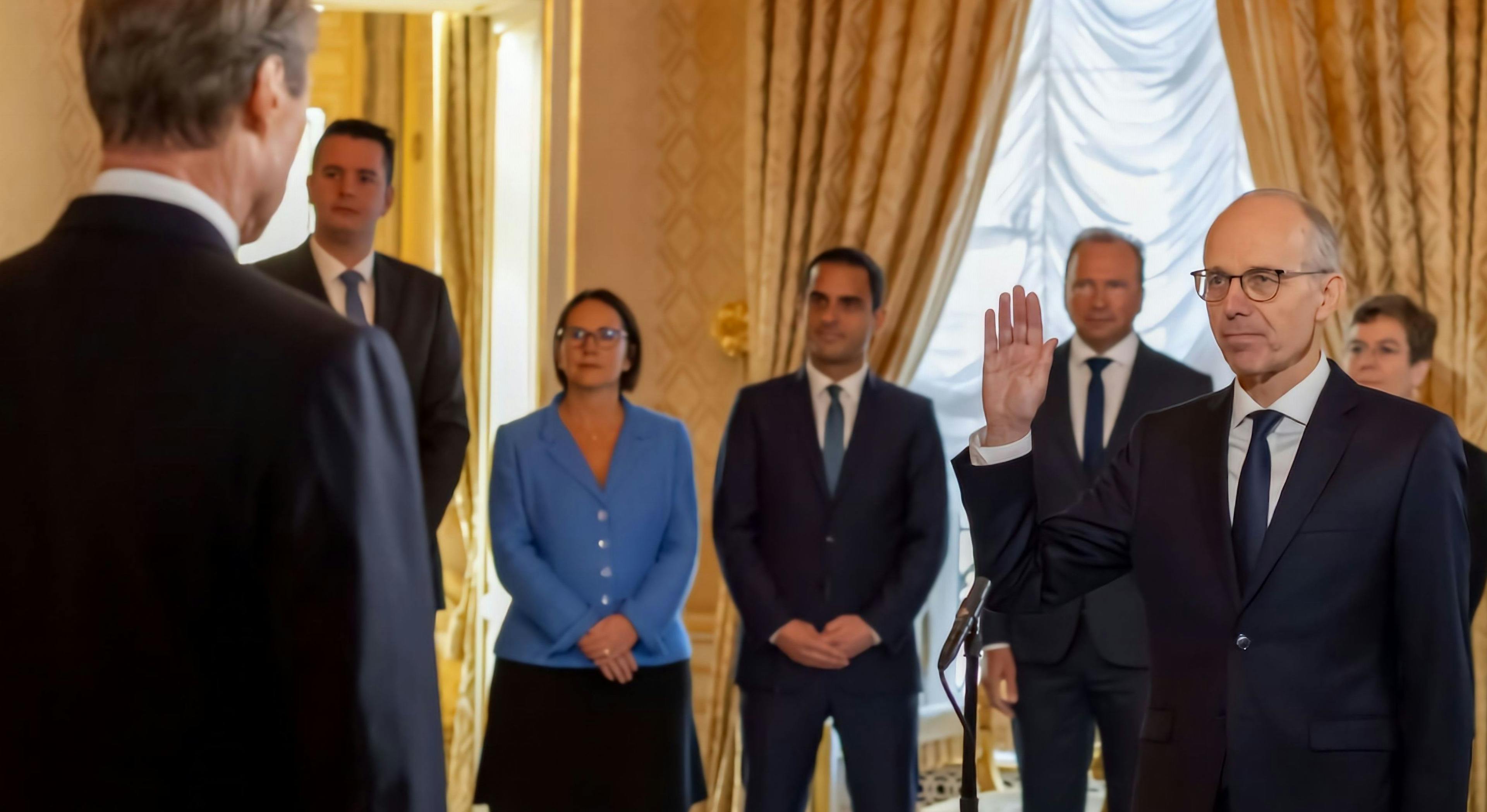
Luxembourg's Political System Guide
In this guide, you will learn about the political structure of the Grand Duchy, its representatives, political parties and leaders, past and upcoming elections, how to vote, and other important details.
Why did we create the guide you are reading?
Democracy thrives on accurate information. That is why our political guide serves as a gateway for those who want to truly understand the governmental structure and electoral process in Luxembourg.
Read moreLuxembourg is a constitutional monarchy, meaning that it has a monarch as its head of state. In addition to the constitutional monarchy, the country operates as a parliamentary democracy. This means that the government is elected by the members of the parliament, who in turn are elected by the people.
Guillaume V was born on November 11, 1981, and became Grand Duke of Luxembourg on October 3, 2025, following his father, Grand Duke Henri. In 2012, he married Countess Stéphanie de Lannoy, who became Grand Duchess Stéphanie of Luxembourg. The couple has two children – Prince Charles and Prince François.
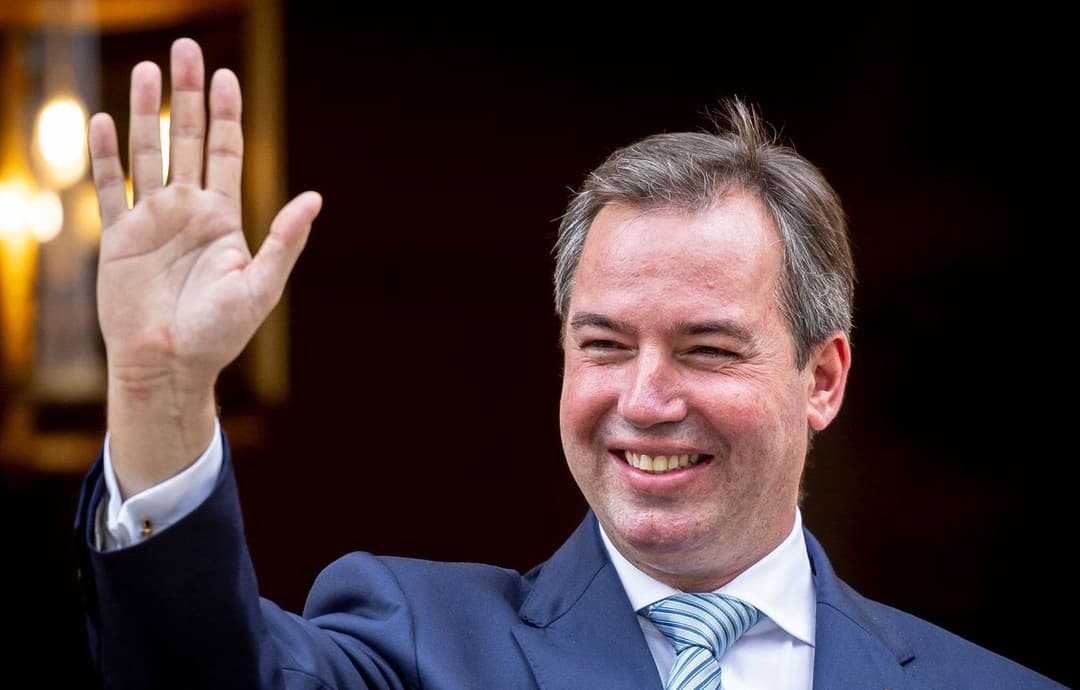
The monarchical and governmental powers are distinctly separated. It is the State, not the Sovereign, that is answerable to the local Parliament and thus to the citizens of the Grand Duchy of Luxembourg.
There are three branches of power in the Grand Duchy. Each of them has its own structure and is responsible for the administration of the country in the domain.
Law-making
The main legislative body is the Chamber of Deputies or Parliament, which consists of 60 members elected for 5-year terms. The last elections were held in October 2023. Members are elected on the basis of proportional representation.
Electoral system divides the country into four constituencies. The number of seats allocated to each constituency is proportional to its population
This advisory body examines and gives its opinion on draft laws and Grand Ducal decrees before they are submitted to the Chamber of Deputies. Its role is to ensure that the proposed laws are consistent with the existing legal and constitutional framework.
Enforcing laws

How laws are made
- The government members can suggest new laws. This power is called governmental initiative.
- After the Council of State checks these suggestions to be compliant with other laws in the country, they go to the Chamber for a vote.
- If Parliament agrees on a suggested bill, it’s time for the Grand Duke to agree to it and make it official by signing the bill.
- This new law is then written down in a legal book called the Mémorial, and from that moment, it must be followed.
The government consists of various ministries, each responsible for specific areas such as education, health, and finance. Ministers head these ministries and are appointed by the Grand Duke based on the recommendation of the Prime Minister.
Political figures in Luxembourg
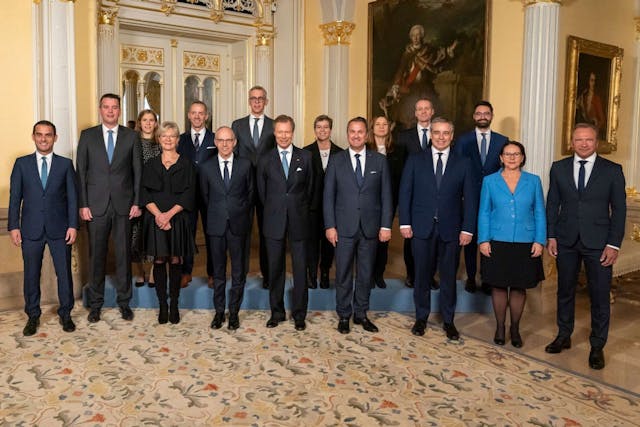
Interpreting laws
Under the Constitution, the judicial power is held by courts and tribunals, which operate independently.
In Luxembourg, the legal system includes three types of courts
Constitutional
Judicial
Administrative
Each type of court has its own special focus, helping to keep laws, government actions, and administrative decisions fair and just.
Individuals cannot directly approach the Constitutional Court with grievances or appeals. Instead, if someone challenges the constitutionality of a law during a legal or administrative proceeding, it can be escalated to the Constitutional Court.
The Government uses the powers granted to it by the Constitution of 1868. All ministers answer to the Chamber of Deputies also known as Parliament, the legislative body, which is elected every 5 years and has 60 seats for the candidates from different political parties in Luxembourg.
These candidates are elected by the nation, and the last general elections were held in October 2023.
Leaders of the gouvernement

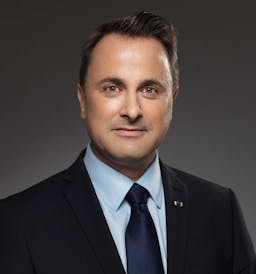
Did you know?
Having two deputy prime ministers can be a strategic move to efficiently distribute important responsibilities and expertise, ensuring that the government can function effectively and adequately address a wide range of issues. The previous government formation, led by two prime ministers – Paulette Lenert and Francois Baush – had this dual structure.
The country's politics are coalition-based, with parties working together to form the government. The CSV is still a dominant force in the Chamber, and the current government is led by a parties coalition, demonstrating the multiparty democratic system in action. It is called the Frieden-Bettel government and compromises politics from both DP and CSV.
The political scene in Luxembourg is vibrant with several parties representing a range of ideologies, from centrist to left-wing, with different histories, manifestos and campaign approaches. Here is an overview of the most prominent Luxembourgish political groups.
These candidates are elected by the nation, and the previous general elections were held in October 2023, resulting in a formation of a new governement led by Frieden and Bettel.
Major parties
The present government is center-right, and is led by a coalition of the two major and oldest political parties in Luxembourg — Democratic Party and Christian Social People's Party. The CSV historically holds the majority of seats in the Chamber of Deputies and remains a prominent power in the country with Prime Minister Luc Frieden serving the state. And while DP has not secured enough support to stay leading power, it is still widely represented in the current coalition through ministers.
Though Greens and Luxembourg Socialist Workers' Party did not enter the current coalition government in 2023, they still hold seats in the Chamber of Deputies and remain a prominent political force in Luxembourg.

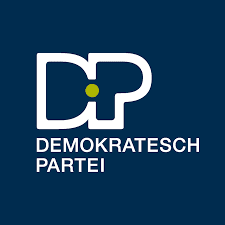


Opposition parties
In a parliamentary democracy like Luxembourg, parties find themselves in opposition due to a variety of reasons, often stemming from differences in policy, ideology, or electoral outcomes.
The opposition refers to the political forces, such as parties, that are not part of the ruling governing alliance.
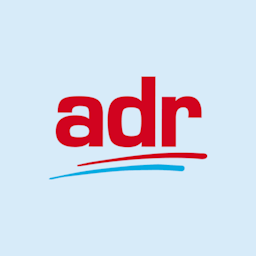


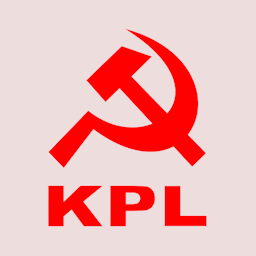
Newly emerged parties
Beyond the parties that are familiar to voters and even participate in the state process, political life does not stand still. New political factions are emerging in Luxembourg, offering voters fresh ideas and a new perspective.

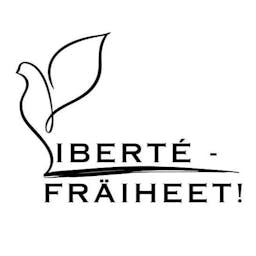


Earlier this year, the 2023 Luxembourg legislative elections marked a crucial step in local governance changing the ruling coalition and gaining a new Prime Minister. However, the spotlight now shifts to the upcoming European Parliament elections, scheduled in June of 2024.
In the 2024 parliamentary elections, Luxembourg's citizens will cast their votes to select representatives for the European Parliament, also known as MP. As of now, Luxembourg is entitled to 6 seats in the European Parliament. These seats will be distributed among various political parties based on their performance in the election polls.
In Luxembourg, all eligible voters are required to vote to ensure that election outcomes represent the entire population. There will be a single electoral constituency presented. If you can't vote, you need to give a valid reason along with appropriate proof to the relevant State Prosecutor.
Once registered, voting is compulsory in future elections, and this registration is separate from municipal election registration. If you do not vote, you can be fined!
Check if you can vote in June 2024
In Luxembourg, you are automatically allowed to vote if you are registered on the electoral rolls, a task managed by the local government in the commune. The Parliamentary elections in Europe take place simultaneously across 27 countries, including Luxembourg. Residents of Luxembourg from other countries have the option to vote either from their home country or in Luxembourg. To vote in Luxembourg, they need to register with their local commune.


Give your vote to the candidates
When it comes to casting your vote, you have two options: voting in person at polling stations or voting by correspondence. Luxembourg citizens residing abroad are allowed to participate in elections through postal voting.
- The College of the Mayor and Aldermen sends a letter to each voter at least 5 days before the election. This letter includes the date, opening and closing times, and location of the polling station provided for the specific voter.
- On election day (for example, Sunday, June 9) you must visit the polling station to give your voice to the candidates of your choice. Bring your ID card or passport for identification.
- Mark your preference, choose the candidates, and fill your ballot at the polling station to submit your votes. Then wait for the results of the elections, you can find them online, on the television and read in the newspapers.
Read article
Why did we create the guide you are reading?
Democracy thrives on accurate information. That is why our political guide serves as a gateway for those who want to truly understand the governmental structure and electoral process in Luxembourg. Luxtoday aims to be an active part of the community, its events and future prospects. We provide our readers with up-to-date, adaptable guides and articles to ensure a smooth integration into the country and life here.
Frequently Asked Questions (FAQ)
How many political parties does Luxembourg have?
Luxembourg's political landscape is characterized by a vibrant multi-party system. As of 2023, the Luxembourg Parliament, also known as the Chamber of Deputies, includes various parties.
The Christian Social People's Party (CSV), led by Luc Frieden, holds a significant presence with 21 seats. Other key parties are the Luxembourg Socialist Workers' Party (LSAP), led by Paulette Lenert with 11 seats; the Democratic Party, under Xavier Bettel's leadership, holding 14 seats; The Greens, led by Sam Tanson with 4 seats; the Alternative Democratic Reform Party (ADR), headed by Fred Keup with 5 seats; Pirate Party Luxembourg, under Sven Clement with 3 seats; and The Left, led by David Wagner with 2 seats.
Additionally, emerging parties like Focus, led by Frank Engel; Volt Luxembourg; the Communist Party of Luxembourg; Liberté - Fräiheet!; and The Conservatives, headed by Joe Thein, are also part of the dynamic political spectrum, indicating a diverse and evolving political environment in Luxembourg.
How to participate in European elections in Luxembourg in 2024?
What if I can't vote on elections day?
Voting is compulsory in Luxembourg, and failure to vote without a valid excuse can result in legal action, including fines and even imprisonment. If you are unable to vote on Election Day in Luxembourg, you have a number of options:
You can request to vote by mail. To do this, send your application to vote by post to the College of Mayors and Aldermen of the municipality where you are registered to vote at least 25 to 40 days before the elections date. You can submit the application online through Guichet as well.
You can recieve an excuse from voting. If you are unable to vote, you must notify the public prosecutor with territorial jurisdiction over your place of residence, stating the reasons and providing the necessary supporting documents. If the public prosecutor considers the reasons to be valid, you will not be subject to any legal proceedings.
Some people are automatically exempted from voting. Voters who reside in a municipality other than the one in which they are required to vote on election day and voters over the age of 75.
Source: elections.public.lu, vdl.lu, en.wikipedia.org, adr.lu, csv.lu, dp.lu, lsap.lu, greng.lu, piraten.lu, dei-lenk.lu
We took photos from these sources: Monarchie.lu, gouvernement.lu, CSV Facebook Page, ADR website, Conservatives website, LSAP website, DP website, Greens website, Pirates website, KPL website, Fokus website, Left website, Volt website, Liberté website, Democratic Party Flickr page, Chamber of Deputies website, European Commission website, CSV website by Max Hein, SIP by Julien Warnand